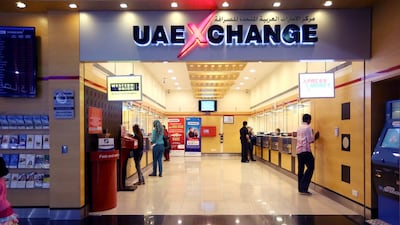More than US$600 billion in remittances flowed across the world last year, sent home by expats and migrants according to the World Bank. These remittances promote global equality, help developing markets with liquidity boosts, and spur investment in infrastructure, health care and business.
Remittances are essential financial flows linking global economies. For a sense of perspective, consider World Bank data that reveals that 3.4 per cent of the world’s population – or some 250 million people – are living outside their country of origin. Most of them are looking for better economic prospects and better quality of life. And many of them remit money back home regularly, the data reveals. The UAE is the world’s third-largest outward remitter, coming in just behind Saudi Arabia at number two – making it a given then that remittances are a quintessential part of a UAE expat’s life. But is there an ideal time to remit money?
Payday is busiest
For most people, remittances correlate with liquidity. There is a spike in remittances at the end of the month, which continues into the first week of the next month, as in most cases salaries are disbursed to employees during the said period. Xpress Money research indicates that up to 75 per cent of all transactions happen during the last five days of a month and the first 10 days of the new month. Money transfer outlets are busier during this period. So if people can schedule commitments a bit differently, and hold onto some liquidity, it might be worth scheduling transactions for the middle of a month – when waiting times are shorter at exchange houses. Here’s the caveat though: how busy exchange houses are, has no effect on the exchange rate. In fact, exchange rates are determined by global market movements first, based on which exchange houses arrive at their rates.
Weekends are quiet
Most people believe that remittance outlets are mobbed on the weekends, and fairly quiet during the week. Our research shows that’s not the case. With accessibility to money exchange options much better today (major local exchange houses have branches across the country), the customer has a choice to remit any time through the week to avoid queues during peak remittance days. Again, the time and day has no bearing on the exchange rates available.
Types of remitters
There are two sorts of remitters in the UAE – blue-collar and white–collar.
• The blue- collar remitters are those supporting families back home, who don’t have the luxury of waiting for ideal rates. These customers base their remittance schedules on their financial commitments and the needs of their family back home without worrying about decimal points. And there’s no reason to worry – because exchange rates fluctuate every day.
• White-collar expats, on the other hand, are in high-powered jobs and often have the freedom to time their remittances to coincide with favourable exchange rates. They pool their resources, and wait for the ideal time to transfer money back home because they’re not bound by a monthly schedule of overseas commitments. And for larger amounts, minute exchange rate fluctuations can matter. For instance, a fall in the price of the British Pound (GBP) due to the Brexit referendum result saw a rush of expats remitting money home to take advantage of attractive prices. So if one has the liquidity to sit it out and wait, there can be some good bargains to be had in terms of exchange rate fluctuations when remitting large sums.
Do fees have an effect
You could argue that remittance fees and overheads matter more than minute currency fluctuations in determining value for the customer. This is only true for smaller sums of money. For power remitters sending home very large sums of money, the fluctuating decimal could fetch the customer huge gains in the receiving currency. While the industry is working towards lowering remittance costs across the board to empower consumers, Mena region remittance costs are still relatively high – averaging around 7.63 per cent for Q2 2016. Yet there are a few international money transfer brands that offer remittances at a much lower cost as compared to the industry average. The average cost of remittance is calculated based on the overall cost of remittance borne by the customer – this cost comprises of two components, the transfer fee and the foreign exchange rate. Therefore, it is always worth shopping around for brands with the lowest customer fees and best exchange rates, to get the most attractive deal for your money transfer.
Sudhesh Giriyan is the chief operating officer of Xpress Money.
pf@thenational.ae
Follow us on Twitter @TheNationalPF

